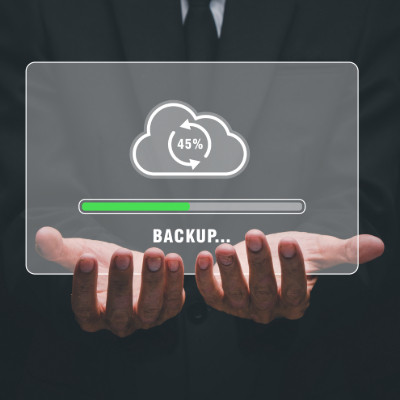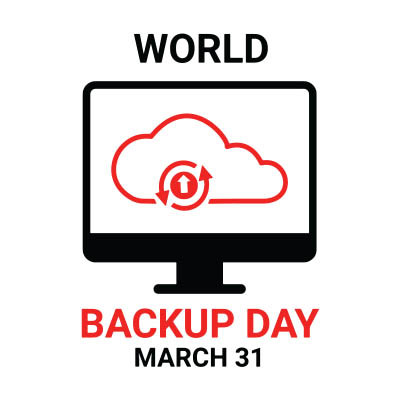Think of a good data backup system as insurance for your digital assets. You hope you never need it, but you'll be incredibly grateful it's there if something goes wrong. This month, we're going to explore the three key parts of any up-to-date data backup system and how we can use the newest technology to make backing up your data as smooth and easy as possible.
Argentum IT LLC Blog
Technology is meant to be the wind in your business' sails, propelling you forward, simplifying tasks, and making operations smoother than a freshly paved highway, right? Sometimes, it is! Other times, it feels more like a mischievous gremlin has been let loose in the engine room, and certain seemingly small habits can escalate into full-blown operational nightmares.
Here at Argentum IT, we've seen a pattern or two. Today, let's shine a spotlight on three common technology missteps that might be silently sabotaging your productivity or even worse, leaving your digital doors wide open.
Do you know what goes into a successful data backup strategy? If not, know that your business depends on these contingencies to confidently face the challenges of today’s business world. Today, we’re breaking down the essentials of a sound backup strategy—and trust us when we say it’s more complicated than you think.
There are, plainly and simply, too many ways that a modern small or medium-sized business can experience an issue that puts their IT out of commission in one way or another. Each one can hit one of these businesses particularly hard in the wallet.
Let’s review some today and discuss how they can be resolved.
When your business’ data is so crucial to your successful operations, there are certain precautions that you simply need to take for the sake of your business’ longevity. One such precaution: data backup.
Your data is the gas that powers your business’ engine, whether you’re referring to project files and intellectual property or financial info and customer records. As such, imagine what it would mean if your business ran out of gas… or, more accurately, it was siphoned out.
Today is World Backup Day, an annual reminder that losing your data is just one accidental delete, cyberattack, or spilled drink away. The idea is simple: back up your files before disaster strikes. Because trust me, nothing ruins your day faster than realizing all your work, memories, and important files have vanished.
Running a business is already confusing enough without worrying about security at all times. Whether you’re a small business owner or a multi-level enterprise, security is just as important for all the same reasons. Today, we want to share a couple of security strategies you can implement today to feel better about the current state of your infrastructure moving forward.
Imagine waking up one day to find your phone wiped clean with no contacts, no photos, and no messages. Now, picture this happening to an entire business, where all their files, data, and systems are gone. Scary, right? That’s why businesses need a Disaster Recovery (DR) system. It helps them bounce back when things go wrong. Here’s how to build one.
Every business’ worst nightmare is a data loss incident, and if you’re caught unawares, such an incident can set you back financially and operationally for months. Today, we want to cover some of the common data your business collects that you absolutely need to have backed up. If you don’t, you could become subject to serious fines due to regulations and other industry-specific mandates.
Digital storage has exploded, in no uncertain terms, over the last few decades. While hard disk drives (HDDs) were the predominant storage format for most of that time, today’s faster and hardier solid-state drives (or SSDs) are becoming more affordable and popular.
However, there are still plenty of HDDs out there, all far more prone to breaking than their more advanced counterparts. So, how can you tell when a hard drive failure is pending?
We have frequently espoused the benefits of data backups, referring to how critical they are should your business experience a disaster at any scale. However, there is always the concern that your backups could also be altered negatively. This is one reason that immutable backups exist.
Let’s take a few moments to examine the concept of an immutable backup and its benefits.
Every organization deals with operational problems in one manner or another. There are dozens of situations that can cause downtime, and having a comprehensive data backup plan can alleviate many of them. This month’s newsletter discusses business continuity and how data backup is a critical piece of that process.
Nowadays, businesses need to be prepared for almost every circumstance. You may have heard the term “BDR” used to describe a method of attaining this level of preparation. We wanted to discuss this term in more depth, covering what it refers to and what you need to do to protect your business should BDR be right for you.
Spoiler alert: it very much is.
How often do you think about your data backup system? If you’re like most businesses, it’s something that you will likely set up, then quickly forget about, provided you haven’t had to use it. Still, having one is essential to any modern business, and building it with clear outcomes and metrics in mind will help you make your data backup system more effective for the moments when you’re glad you have it.
You don’t need us to tell you that ransomware is a problem (or maybe you do–we mean, it’s a huge problem). It’s dangerous to both businesses and individuals, and it has become such a common threat that all organizations need to have a plan in place to address it with their staff. Today, we want to highlight a three-part strategy that you can use to approach ransomware in the most secure way possible.
Business continuity is one of those topics that is frustrating to confront. It’s not terribly interesting and has very little practical value in the context of day-to-day operations, but it is intrinsically important to the sustainability of any business that happens to deal with problems. Consider for a minute how many businesses fared when the COVID-19 pandemic was in full force. There weren’t many businesses that had contingency plans for a “global pandemic.” The businesses that were quick to respond and adapt often came out on top, compared to businesses that struggled to commit.




















